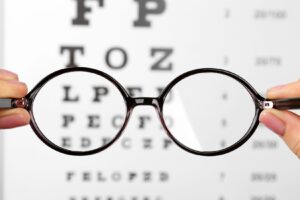What’s The Difference?
I have had four students experience their first seizure with me and my paras in my classroom. In all four cases, 911 had to be called. In all four cases, I had to make the difficult phone call to their parents… letting them know that their precious child just had a seizure and to meet us at the school and/or hospital. Needless to say, there was a lot of questions and for some, not enough clear answers. There is so much information to sift through. One parent kept referring to her son’s seizure as a seizure disorder, while another parent wanted to refer to it as an incident because the word seizure elicited fear.
Most parents who experience seizures for the first time fear them, and for good reason. Seizures never paint a pretty picture. Most people, when they hear the word seizure, immediately think of epilepsy and convulsions! It’s no wonder why, when you plug the word seizure in your search bar, the first website that is presented to you is one on epilepsy! But there is so much more to seizures. Often confused and overlapped, a seizure, a seizure disorder, and epilepsy are not the same. Having a seizure does not classify a person as having a seizure disorder, nor does having a seizure disorder means one has epilepsy. A person can have one (seizure) without having the other (seizure disorder/epilepsy). Per a parent request, this post will define what seizures are and explain the difference.
In general, what are they?
Seizures occur when abnormal electric signals from the brain change the way the body functions. As a result, the body responds by either (or a combination of) convulsing, loss of consciousness, muscle jerking, stiffness, eye blinking, staring into space, confusion, twitching, and more. Seizures can last anywhere from a few seconds to minutes.
There are many different types of seizures, but they can be grouped into two broad categories: generalized seizures (which involves both sides of the brain) and focal/partial seizures (which involves a specific area of the brain). Seizures can last anywhere from a few seconds to minutes.
What’s the difference between the three?
A seizure is a single occurrence of uncontrolled electrical brain activity. An isolated event that is caused by an unusual stress, such as an illness, high fever, infection, etc. In each case of my four students, the seizure was brought on by illness, infection, and fever. Once the underlying cause is treated, the seizure activity goes away. It can be months, even years before/if another seizure occurs. Not everyone who has one seizure will have another one.
A seizure disorder is a medical condition (one of about 40) characterized by recurrent episodes of uncontrolled electrical activity in the brain, thus resulting in two or more seizures a day, a week, a month. In other words, when a person has had two or more seizures which have not been caused by specific events such as trauma, illness, infection, fever, or chemical change, they are considered to have a seizure disorder.
Epilepsy, on the other hand, is a type of seizure disorder! It is the fourth most common neurological disorder and affects people of all ages. It is characterized by unpredictable seizures and can cause other health problems. Just like there are different types of seizure disorders, there are different forms of epilepsy.
How are they treated?
Although seizures are not always treated with anti-seizure medications, seizure disorders and epilepsy are. Other forms of treatments are available when anti-seizure medications are not enough, such as diet, surgery or nerve stimulation treatment.
Things to consider…
No matter how well controlled a seizure disorder might be, certain events can almost guarantee a change in seizure activity. Events such as a growth spurt, weight change (gain/loss), illness, other medications, lack of sleep, puberty, missing a dose, low blood sugar, vitamin deficiency, bright lights, fever, and stress (to name a few) can lead to increased, decreased, change in the nature of, length of, and intensity of a seizure.
As scary as seizures may be, they can be managed and controlled, and kids and adults can live very productive lives. It is true that the management of seizures can sometimes be difficult, especially when initially diagnosed, but management is very important to the successful control of seizures.
The information provided is for informational purposes only, and should not be construed as medical advice. The content is not intended to be a substitute for professional medical advice, diagnosis, or treatment. Always seek the advice of your physician or other qualified health provider with any questions you may have regarding seizures, seizure disorders, and/or epilepsy.



